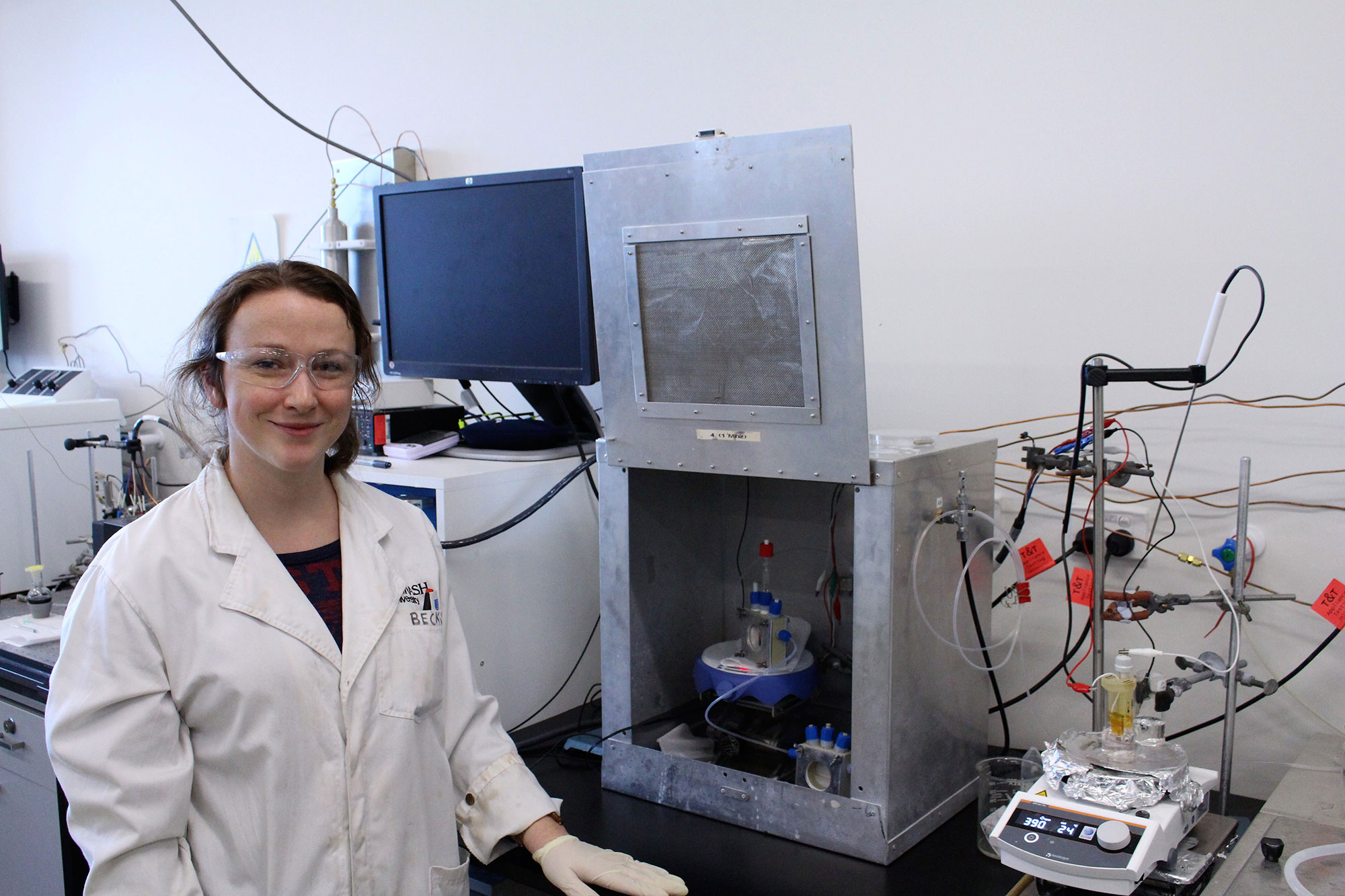News
3D printing bone tissue
Jun 28 2022
After graduating with her Masters of Science from Melbourne University, where she specialised in materials and polymer chemistry, Rebecca Hodgetts joined ACES at Monash University to pursue a PhD. Rebecca and the team at ACES Monash are interested in finding ways to store energy. We recently caught up with her to find out more.

What are you currently working on?
We’re looking to find a way of storing renewable energy. One of the most sustainable ways of doing this is by splitting water into hydrogen and oxygen and harvesting the hydrogen. The catch? Hydrogen is not easy to transport.
As a result, we have changed direction and are looking to combine the knowedge and techniques used for water splitting and using them for converting nitrogen (from air) into ammonia. Ammonia, which is easily transported, becomes the carrier of the eventual hydrogen energy.
If successful, we would be taking nitrogen from air, using water to convert it into a chemical fuel that has the potential to address sustainable energy production as well as climate change.
Can you tell me about your background before joining ACES?
I was a polymer chemist at Melbourne University, so completely different to what I’m doing now. I was working on trying to put biomarkers onto protein-like capsules. The purpose of these capsules was to house chemotherapeutic drugs preventing them from damaging healthy cells. My job was to investigate how to attach the biomarkers to the capsule so that the drugs would only target the cells we wanted.
Why did you decide to move on from working as a polymer chemist?
The real question is why I did I do what I was previously doing – and that was because I got the opportunity to work with a really great team. I always wanted to do what I am doing now. Thankfully, I got lucky that the team here happens to be great, too.
What does a usual day look like for you here?
Every day is different, but generally, if there’s no teaching, I inspect any experiments that were running overnight, analyse them and then set up the next experiment for the day. That whole process takes about five hours or so. Then it’s all just processing the data collected overnight while hoping nothing has gone wrong with the experiments. I also try to read literature before going home. Then do it all over again the following day.
What do you hope ultimately comes out of your research?
I just want to create something that someone will actually use. Not necessarily at the exact minute, but at least within the next 10 years. I want to make something relevant and useful to a wide range of people.
What is your favourite aspect of your work?
The people. Everyone is always around and ready to help and there is just so much knowledge. It’s really the best place to be.
Thanks for your time.













